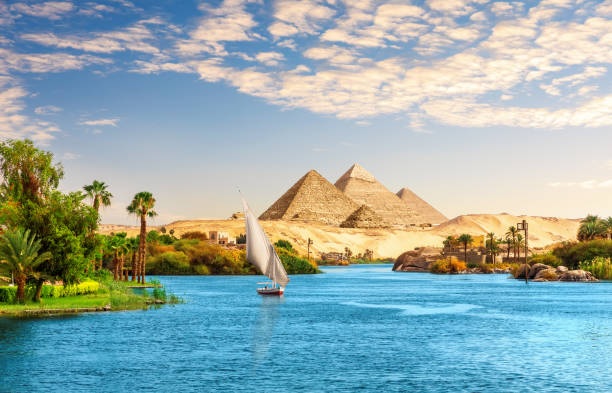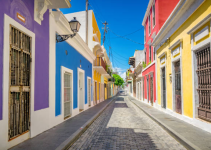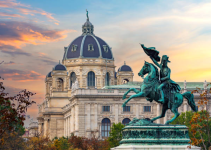Egypt will steal your breath away. The pyramids, the temples, the chaos of Cairo, the serenity of a Nile sunset. But here’s the truth: this ancient land can also trip you up if you’re not prepared.
I’ve watched too many travelers make avoidable mistakes that turned their dream trip into a stress-filled nightmare. Some lost money. Others got sick. A few even landed in awkward situations with local authorities.
Your Egyptian adventure doesn’t have to include these painful lessons. Let’s talk about what to skip, dodge, and flat-out refuse so you can focus on falling in love with this incredible country.

Things to Avoid in Egypt
Egypt rewards the prepared traveler and humbles the careless one. Here are ten pitfalls you need to sidestep for a smooth, memorable journey.
1. Drinking Tap Water (Yes, Even for Brushing Your Teeth)
Your stomach isn’t ready for Egyptian tap water. Period.
The water treatment standards differ drastically from what your gut bacteria are used to, and even locals who’ve built up immunity often stick to filtered water. You might think a quick sip while brushing your teeth won’t hurt, but that’s exactly how most travelers end up spending two days in their hotel room instead of exploring Luxor.
Buy bottled water everywhere you go. Keep a couple of bottles in your bag at all times. Hotels will often provide complimentary bottles, so grab those before heading out. When you’re at restaurants, double-check that your water bottle arrives sealed. Some places refill old bottles with tap water, and you definitely don’t want that surprise.
Ice cubes present another sneaky problem. They’re made with tap water. Skip them in your drinks unless you’re at a high-end hotel or restaurant that uses filtered water systems. Your fresh mango juice tastes just as good without ice, trust me. One traveler I know learned this lesson after a refreshing lemonade at a street cafe left her bedridden for three days.
2. Taking Photos of Bridges, Military Sites, or Uniformed Officers
This one catches people off guard every single time.
Egypt takes security seriously, and its definition of “sensitive location” is much broader than you’d expect. Bridges, government buildings, police stations, military installations, and even some metro stations are off-limits for photography. That beautiful bridge spanning the Nile? Not worth the camera memory because security forces can (and will) ask you to delete photos or even detain you for questioning.
Uniformed personnel don’t want to be in your vacation photos either. Egyptian law prohibits photographing police officers, soldiers, or any security personnel without explicit permission. What seems like an innocent street scene to you might include someone in uniform in the background, and that’s enough to cause problems.
The penalty isn’t just embarrassing. You could face confiscation of your camera or phone, deletion of all your photos (not just the problematic ones), or several hours of questioning at a police station. Some travelers have faced fines or brief detention. When in doubt, put the camera down. Ask your guide or a local if you’re unsure whether a location is safe to photograph. Egyptian people love having their regular street scenes captured, but government infrastructure is a different story entirely.
3. Wearing Revealing Clothing at Religious Sites and Conservative Areas
Egypt is a predominantly Muslim country with conservative dress codes, especially outside tourist resorts.
Your Instagram-worthy outfit might work at your Red Sea resort, but it’ll attract unwanted attention (and sometimes outright denial of entry) at mosques, churches, and archaeological sites. Women should carry a lightweight scarf to cover their shoulders and hair when entering religious sites. Loose-fitting pants or skirts that cover your knees make everything easier. Men get more leeway, but shorts and sleeveless shirts still raise eyebrows in many places.
I watched a group of tourists get turned away from the stunning Mohammed Ali Mosque in Cairo because they showed up in shorts and tank tops. The guards weren’t rude about it, but they were firm. No exceptions. The group had to go back to their hotel, change, and waste two hours of their day. Some mosques provide cover-ups at the entrance, but don’t count on it.
Cairo, Luxor, and Aswan lean more conservative than beach towns like Hurghada or Sharm el-Sheikh. Match your clothing to your location. Beach resorts allow swimwear at pools and beaches, obviously, but cover up when you leave those areas. Even walking from your hotel to a nearby restaurant in a bikini cover-up shows respect and helps you blend in better. Local women often dress modestly, and following their lead will make your experience smoother and more respectful.
4. Accepting Rides from Unlicensed Taxis or Random “Helpful” Strangers
The moment you step outside a major hotel or tourist site, offers of help will flood your way.
Some are genuine. Many are scams designed to separate you from your money. That friendly person who insists on walking you to the “best papyrus shop” isn’t doing it out of kindness. They’re getting a commission. The unofficial taxi driver offering you a great rate will often take you on a scenic (read: expensive) detour past several shops where his “cousins” work.
Use official taxi services like Uber or Careem in Egyptian cities. They’re cheap, reliable, and the fare is set before you get in. No arguments, no inflated tourist prices, no unexpected stops at souvenir shops. Regular metered taxis work too, but make sure the driver turns on the meter before you start moving. Better yet, agree on the fare upfront and have the exact amount ready.
White taxis with black and white checkered stripes are official Cairo taxis. In other cities, look for properly marked vehicles with company names and phone numbers. If someone approaches you on the street offering transportation, politely decline and walk away. Tour guides arranged through your hotel or a reputable company are different from random people who attach themselves to you at tourist sites. Learn the difference quickly.
5. Buying “Authentic Papyrus” from Tourist Shops Without Testing It
Egyptian papyrus art is stunning, and you’ll want to bring some home. The problem? Most tourist shops sell banana leaf paintings disguised as papyrus.
Real papyrus is made from the papyrus plant stem, cut into strips, soaked, pressed, and dried. It’s sturdy, slightly translucent when held to light, and won’t tear easily. Fake papyrus (usually banana leaves) will crack, tear, and deteriorate quickly. You’ll pay authentic papyrus prices for something that falls apart in a few months.
Test before buying. Gently try to tear a corner. Real papyrus resists. Banana leaves rip easily. Hold it up to a light source. Genuine papyrus shows a crosshatch pattern of fibers. Fakes look more uniform. Roll it slightly. Papyrus flexes without damage. Banana leaves crease and crack.
The best papyrus comes from family-run workshops, not from shops near major tourist sites. Your guide can recommend legitimate places or look for establishments that demonstrate the papyrus-making process. Yes, you’ll pay more for authentic pieces, but you’re getting something that lasts. Bargaining is expected, but if a large, detailed piece costs only $10, you’re definitely looking at a fake. Quality papyrus art starts around $30-50 for smaller pieces and goes up from there depending on size and intricacy.
6. Eating Street Food Without Checking Freshness and Preparation
Egyptian street food is incredible. Koshari, ful medames, ta’ameya (Egyptian falafel). Your taste buds deserve this experience.
Your stomach, however, needs you to be smart about where and what you eat. Food safety standards vary wildly, and tourists digestive systems aren’t prepared for local bacteria levels even in properly prepared food. The key is choosing the right vendors and knowing what to order.
Look for busy stalls with high turnover. If locals are lining up, that food is fresh and probably safe. Empty stalls with food sitting under the sun for hours are a hard pass. Watch the preparation. Is the vendor touching money and then handling food without washing their hands? Are raw and cooked items stored separately? Is the meat sitting at room temperature?
Stick to fully cooked items. Grilled meats, fried foods, and dishes served piping hot are generally safe. Avoid raw vegetables unless they’re at a high-end restaurant with proper washing facilities. Tap water on those vegetables is the issue, remember? Fruit you can peel yourself (bananas, oranges, mangoes) is fine. Pre-cut fruit salad is not.
Koshari is usually a safe bet because it’s all cooked components mixed together. Grilled meats from busy street vendors work well. Fresh bread is fantastic and low-risk. Save the adventurous raw salads and seafood for restaurants with good reputations. One bout of food poisoning will wipe out three days of your trip, and trust me, Egyptian bathrooms aren’t where you want to spend your vacation time.
7. Paying the First Price at Markets and Souk
If you pay the first asking price at Khan el-Khalili or any Egyptian market, vendors will laugh at you after you leave.
Bargaining isn’t just accepted in Egypt. It’s the expected social norm, part of the shopping experience that both buyers and sellers enjoy. Not bargaining actually insults vendors because it suggests you don’t take their wares seriously enough to engage in the traditional back-and-forth. The initial asking price is often three to five times what the vendor expects to receive.
Start at about 30-40% of the asking price. The vendor will look shocked, maybe offended. That’s theatre. They’ll counter with a slightly lower price. You go up a bit. They come down more. Eventually, you meet somewhere in the middle, usually around 50-60% of the original asking price. If they won’t budge enough, walk away. Seriously. Walking away often brings the vendor running after you with a better offer.
Stay friendly throughout the process. Smile, joke, share some tea if offered. This is a social interaction, not a confrontation. Comment positively on the item you want. Mention you’re looking at several shops (even if you’re not). Reference prices you’ve seen elsewhere. If you’re buying multiple items, use that as leverage for a better per-item price.
Some items have less bargaining room than others. Food and drinks usually have fixed or nearly fixed prices. Souvenirs, textiles, jewelry, and art offer the most negotiation space. Tourist sites nearby mean higher starting prices. Venture into local markets away from major attractions for better deals overall. Shopping should be fun in Egypt, and mastering the art of bargaining makes it even better.
8. Ignoring the Baksheesh Culture
Baksheesh runs through Egyptian culture like the Nile runs through the country.
It’s tipping, but also more than tipping. It’s small payments for small services, a way of showing appreciation that keeps the social and economic wheels turning. Bathroom attendants, parking helpers, the person who insists on “watching” your car, tour guides, drivers, and hotel staff. Everyone expects baksheesh, and you’ll navigate Egypt much more smoothly once you accept this reality.
Carry small bills everywhere. One-pound and five-pound notes are your friends. Keep them in an easily accessible pocket so you’re not fumbling with your wallet in public. Bathroom attendants typically get 2-5 pounds. Someone who helps with your luggage gets 10-20 pounds, depending on the amount and distance. Tour guides and drivers deserve 50-100 pounds per person for a full day, more if they were exceptional.
The parking/car watching situation confuses many visitors. Someone will approach claiming they’ll “watch your car” even if you didn’t ask. This is standard practice. Give them 5-10 pounds when you return to your vehicle. It’s easier than arguing, and honestly, they probably will keep an eye on your car. Restaurant servers appreciate 10-15% of the bill, though many tourist restaurants now include service charges.
Don’t get angry about baksheesh. It’s not a scam when someone provides a service and expects payment, even if you didn’t technically request that service. Budget extra money for these small transactions throughout your trip. Fighting the culture will only frustrate you. Embracing it and seeing it as part of the Egyptian experience makes everything flow better. Think of it as spreading your tourist dollars directly to working Egyptians rather than just to big hotels and tour companies.
9. Exchanging Money at Hotels or Airports
Airport and hotel exchange rates will rob you blind.
The convenience of changing money the moment you land or at your hotel desk comes with a heavy premium. You’ll lose anywhere from 5-15% of your money through terrible exchange rates and excessive fees. That’s a significant chunk of your travel budget disappearing for absolutely no good reason.
Egyptian pounds (EGP) are what you need, and ATMs offer the best exchange rates. Use bank ATMs rather than standalone machines in shopping areas. Withdraw larger amounts less frequently to minimize transaction fees, but not so much that you’re walking around with unnecessary cash. Most Egyptian ATMs allow withdrawals up to 5,000-10,000 EGP per transaction.
Check with your bank before leaving home about international withdrawal fees. Some banks waive these fees or reimburse them. Alert your bank that you’ll be traveling to Egypt so they don’t freeze your card when Egyptian transactions appear. Bring at least two different cards (different banks if possible) in case one gets blocked or doesn’t work.
Exchange bureaus in downtown areas of major cities offer competitive rates, much better than hotels or airports. Look for busy ones with posted rates. Count your money carefully before leaving the window. Some currency exchange apps show current rates so you know if you’re getting a fair deal.
Credit cards work at major hotels, high-end restaurants, and large shops, but Egypt still runs primarily on cash. Have enough pounds on hand for daily expenses, entrance fees, food, transportation, and baksheesh. Running out of cash in smaller towns or rural areas means scrambling to find an ATM or settling for terrible exchange rates.
10. Planning Your Entire Trip During July and August
Egypt in summer is hot. Not warm. Not toasty. Brutally, punishingly, dangerously hot.
Temperatures in Cairo regularly hit 95-100°F (35-38°C) in July and August. Upper Egypt (Luxor, Aswan, Abu Simbel) pushes 104-113°F (40-45°C). The desert sites you came to see become endurance tests rather than enjoyable experiences. You’ll sweat through your clothes in minutes, chug water constantly, and spend more time seeking shade than actually exploring.
Beyond personal discomfort, the heat presents real health risks. Heat exhaustion and heat stroke hospitalize tourists every summer. The sun reflects off pale stone monuments with blinding intensity. You’ll need sunscreen, a hat, sunglasses, and still feel like you’re being cooked. Popular sites like the Valley of the Kings involve walking in exposed areas with minimal shade. Even early morning visits feel oppressive by 9 AM.
Peak summer is also peak local tourism season because Egyptian schools are on break. Sites get crowded with domestic tourists, lines get longer, and the combination of heat and crowds makes for a miserable experience.
Visit Egypt from October through April instead. October and November offer warm, pleasant days with cool evenings. December through February bring mild days perfect for exploring, though nights can get surprisingly chilly in the desert. March and April warm up again but remain comfortable. You’ll actually enjoy standing in front of those magnificent temples instead of just surviving the experience.
If you absolutely must visit in summer, plan indoor activities during midday heat. Museums, air-conditioned restaurants, and your hotel pool become your best friends between noon and 4 PM. Schedule outdoor monuments for very early morning (sunrise tours are popular for good reason) or late afternoon. Stay hydrated beyond what seems necessary. Heat-related illness sneaks up fast when you’re distracted by incredible ancient architecture.
Wrapping Up
Egypt will challenge you and reward you in equal measure. The mistakes outlined here have tripped up countless travelers, but now you’re armed with the knowledge to avoid them.
Respect the culture, stay alert to common issues, and keep your sense of humor when things don’t go exactly as planned. Egypt rarely does exactly what you expect, and that’s part of its magic.
Your trip will be smoother, safer, and infinitely more enjoyable when you know what to dodge. Now go book that ticket and experience one of the most extraordinary countries on Earth.


